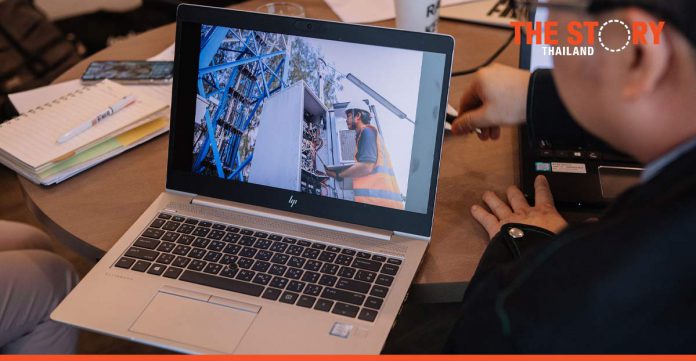The COVID-19 outbreak has put unprecedented pressure on global supply chains while also increasing the need for mobile connectivity. For dtac, the challenge is thus to guarantee the health and safety of its network operations teams while accelerating its network rollout.
At the end of Q2’21, approximately 9,100 nodes of 700 MHz were installed, and dtac will continue to expand 5G capability to more sites in high-traffic areas.
An operation of this size requires vendors and partners, which all need to agree to dtac’s strict safety measures and human rights standards for all workers in its supply chain. One of them is BB Technology Company Limited (BBtec), an integrated telecom operator in the Benchachinda Group, who has been providing cell site installation and maintenance services for dtac for more than ten years. The firm’s services include consulting, survey, design, system analysis and development, base-station construction, installations of fiber optic, exchange network infrastructure, system installations, supervision and network-system maintenance.
“Signal tower construction and network-systems installations are complicated. Think of it as building a house, with several contractors for the foundation, roof, electrical systems, water system, and so on. If just one of these contractors isn’t up to standard, the whole project will be affected. Signal tower construction and maintenance face the same challenges. If a contractor ignores safety, occupational health and environmental policies, it can result in accidents that affect the whole supply chain,” Thanapan Tantisattayakul, Co-Managing Director of BBtec, said.
The Integrity Contract
To avoid any weak links, BBtec requires all its vendors sign an ‘Integrity Contract’ according to which they promise to uphold transparency, responsibility, accountability, and fair competition. With integrity contracts a part of its procurement process, BBtec’s vendors are all entitled to the same fair treatment and occupational safety standards for their workers.
“We emphasize our safety standards to all our contractors before any work starts, be they new or old contractors,” Thanapan said. “BBtec also audits their work sites. But due to the sheer number of work sites across Thailand, we also developed an application to ensure all operations proceed in line with prescribed standards.”
Workers are required to put on full safety gear when performing tasks that are higher than two meters from the ground, including a helmet, safety glasses, clothing with reflective elements, full-body harness, double-hook lanyard, and pole-climbing shoes.
Every morning, before the start of work, contractors must take pictures of their staff wearing a full personal protective equipment (PPE) and upload those pictures to the app, which is then reviewed by the BBtec team. In addition, BBtec deploys audit teams to randomly inspect worksites.
Mission SAFE
Leading the industry towards sustainability-based supply chain management, BBtec, as one of dtac’s four major partners, has joined dtac in its Mission SAFE. This mission is based on five key goals: zero incidents causing death or severe injuries; zero incidents causing grave pollution; zero human-rights violations; a hygienic and well-balanced work environment; and zero corruption.
“To achieve this goal, we must push not only vendors but also their subcontractors. We need to reach every link of the supply chain. Those carrying out work on our behalf must comply with our policies. Hence, we see ourselves as teachers, educating our partners on the new guidelines—and they also hold each other as accountable,” he said.
Through its collaboration with dtac, BBtec has trained its contractors intensively to create even greater awareness on safety. However, the key challenge of sustainability-based supply chain management is about fostering mutual understanding between hirer and vendors, which involves several factors, such as the cost of safety and different interpretations of rules.
“An emphasis on safety can be compared to taking out an insurance policy. When accidents have not yet happened, ones may not recognize the importance of safety rules and regulations,” Thanapan said. “Good communication is therefore critical to foster a mutual understanding with every actor in the supply chain. Once we have the same mindset, we will be able to achieve our shared goals.”





